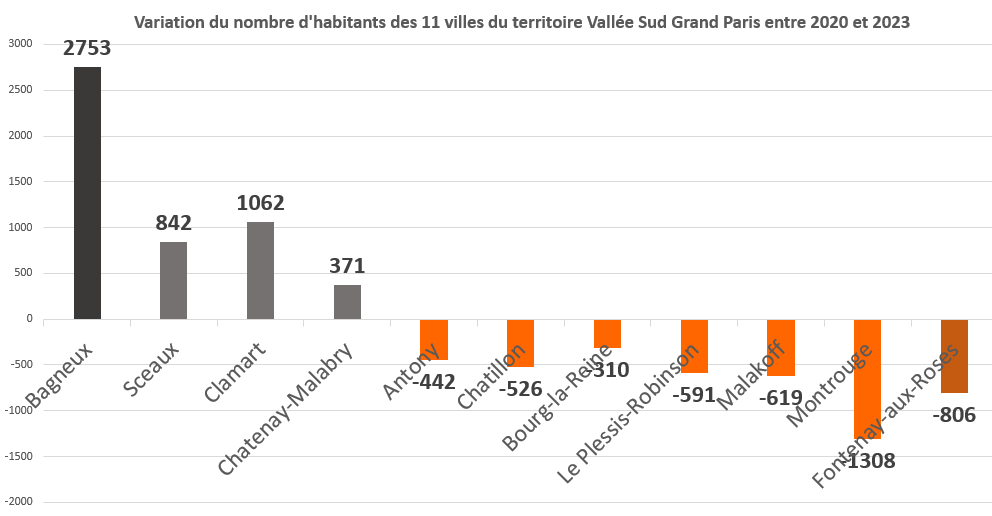Understand Your HMRC Correspondence: A Guide For UK Households

Table of Contents
Identifying Different Types of HMRC Correspondence
Knowing how to identify the type of HMRC letter you've received is the first step in understanding its content. Different letters relate to different aspects of your tax affairs, and recognising these types helps you respond appropriately. Key things to look for include the letterhead, specific references, and the overall subject matter.
Common HMRC Letter Types:
- Self Assessment tax return reminders: These letters remind you of the deadline for submitting your Self Assessment tax return. Missing this deadline can result in penalties.
- Tax bill notices: These letters inform you of the amount of tax you owe and the payment deadline. They clearly state the amount due and payment methods.
- PAYE coding notices: These letters explain your tax code and how it affects your income tax deductions from your salary or wages. Understanding your tax code is crucial for accurate tax calculations.
- National Insurance contributions updates: These letters provide information about your National Insurance contributions, which fund the UK's social security system. They detail your contributions and any potential gaps.
- Penalty notices: If you miss a tax deadline or make an error in your tax return, you may receive a penalty notice detailing the amount payable.
- Investigation letters: These letters inform you that HMRC is investigating some aspect of your tax affairs. Responding promptly and providing the required documentation is vital.
Identifying Genuine HMRC Mail:
Genuine HMRC letters will always feature the official HMRC logo and letterhead. Be wary of any letters that look unprofessional or lack these key identifying features. Always check the sender's address against the official HMRC website to verify authenticity.
Understanding the Key Information in Your HMRC Letters
Once you've identified the type of HMRC letter, carefully review its contents. Several key details require your close attention:
- Unique References: Every HMRC letter contains a unique reference number. This number is essential for tracking your correspondence and ensures HMRC can quickly identify your case.
- Deadlines: Note all deadlines mentioned in the letter, particularly payment deadlines or response dates. Missing deadlines can incur penalties.
- Amounts Due/Owed: Clearly identify any amounts you owe or are due to receive. Check these figures carefully against your own records.
- Contact Information: The letter should provide contact details for further queries or clarification. This may include phone numbers, email addresses, or postal addresses.
- Tax Code Explanation: Your PAYE coding notice will detail your tax code, explaining how much tax is deducted from your earnings. Understanding your tax code is vital for avoiding underpayment or overpayment of tax.
- National Insurance Contributions Explanation: These letters detail your NI contributions, clarifying your contributions towards state benefits. Check for any discrepancies promptly.
- Penalties and Interest Charges: Pay close attention to any penalties or interest charges. Understand why these charges are applied and contact HMRC if you believe there’s an error.
Responding to HMRC Correspondence
Responding to HMRC correspondence promptly and accurately is crucial. The preferred method of communication is typically through the HMRC online portal, offering a secure and efficient way to manage your tax affairs.
- Online Portal: Managing your correspondence online is usually the quickest and most efficient method, providing a secure record of your interactions.
- Phone: For urgent matters or when online access is unavailable, the HMRC helpline offers assistance.
- Post: While generally less efficient, you might need to use the post for sending physical documents.
Always meet the stated deadlines. When replying, clearly reference the unique reference number from the original letter and provide any requested information completely and accurately.
Dealing with HMRC Enquiries and Disputes
If you receive an enquiry from HMRC, respond promptly and provide the necessary documentation to support your case. If you disagree with an assessment or believe there is an error, follow the process for appealing or disputing the decision.
- Handling Enquiries: Respond fully and efficiently, providing clear and concise information to address HMRC's questions.
- Appealing a Tax Assessment: HMRC provides clear procedures for appealing assessments. Understand the timeframe for appeals and gather any supporting evidence.
- Disputing a Decision: If you disagree with a decision, clearly outline your reasons and provide supporting documentation.
- HMRC Helpline: Contact the HMRC helpline for guidance on specific procedures or concerns. Their website also provides a wealth of useful resources.
Recognizing Phishing and Scam Letters
Fraudulent letters attempting to impersonate HMRC are prevalent. Always be vigilant and verify the authenticity of any communication before responding or providing any personal information.
- Identifying Fraudulent Letters: Look for poor grammar, suspicious requests (e.g., urgent payments via unusual methods), and unofficial email addresses or website links.
- Verification: Never respond to suspicious emails or click on unsolicited links. Check the official HMRC website for details on how to verify correspondence authenticity.
- Protecting Your Information: Never share your personal details, passwords, or financial information in response to unsolicited requests.
Conclusion
Understanding your HMRC correspondence is essential for managing your tax affairs effectively. This guide has provided a comprehensive overview, from identifying different letter types to resolving potential disputes. Prompt and accurate responses are essential to avoid penalties and ensure your tax affairs are in order.
Take control of your tax affairs today. Learn more about managing your HMRC correspondence and accessing vital information on the official HMRC website. Stay informed and avoid unnecessary complications by regularly reviewing your HMRC communications and using the secure online portal.

Featured Posts
-
 Action Required Important Messages From Hmrc Regarding Child Benefit
May 20, 2025
Action Required Important Messages From Hmrc Regarding Child Benefit
May 20, 2025 -
 Quantum Computings Impact On The Stock Market In 2025 Rgti And Key Players
May 20, 2025
Quantum Computings Impact On The Stock Market In 2025 Rgti And Key Players
May 20, 2025 -
 Benjamin Kaellman Maalivire Huuhkajien Avuksi
May 20, 2025
Benjamin Kaellman Maalivire Huuhkajien Avuksi
May 20, 2025 -
 Tri Godine Sukoba Tadi Trazhi Odgovornost Shmita Za Napad Na D Etsu
May 20, 2025
Tri Godine Sukoba Tadi Trazhi Odgovornost Shmita Za Napad Na D Etsu
May 20, 2025 -
 Le Role Des Maires Dans La Reussite Des Plans D Urbanisme De Detail En Cote D Ivoire
May 20, 2025
Le Role Des Maires Dans La Reussite Des Plans D Urbanisme De Detail En Cote D Ivoire
May 20, 2025
